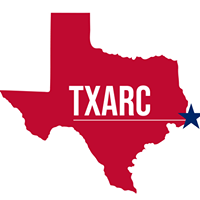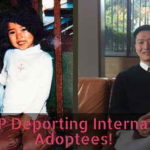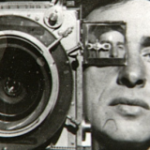12/4/98
People across the country seek access to their original birth records.
Judy McCoy walked into the vital statistics office on Greenwood Avenue on Thursday to request her original birth certificate.
The adoptee, accompanied by friend Ronna Smith and a television news crew that had arrived earlier, were ordered to leave. But Smith and McCoy stood there, refusing to budge until an employee called security. The group left on their own.
“We’re not here to cause any violence,” said Smith, a birth mother who gave up her son for adoption years ago. “We’re just here to pass out information to adoptees and let them know they have civil rights.”
McCoy was one of many adoptees across the country who tried to make a point by walking into vital statistics offices and applying for their original birth records.
Like most states, Oklahoma does not give adoptees “unconditional access” to their original birth records.
Any adoptee born before 1997 must have a court order to access his original records in Oklahoma, explained Jack Atkinson, general counsel for the state Department of Health.
But, Atkinson said, the state Legislature has provided a provision that allows an adoptee born after 1997 to access original information if the birth parents documented this as their wish.
Last month, Oregon passed the first U.S. ballot initiative that gives unconditional access to an adult adoptees’ original birth certificate. Kansas and Alaska also provide open access to records for adoptees.
Although she knew she couldn’t get her original records, McCoy called her actions a symbolic gesture to celebrate the victory for adoptees in Oregon and to raise awareness for a similar initiative in Oklahoma.
“Oklahoma’s going to be tough because it’s a very closed state,” she said.
Only a handful of people showed up at the Tulsa office for the event, touted as the first National Adoptee Rights Day. In Oklahoma City, about four protesters attended the event at the Oklahoma State Department of Health building before security was called.
“We want open records without showing cause,” Smith said.
Smith recently reunited with her son, now 21, and is slowly trying to build a relationship with him.
“It takes months and months because of all the emotions that go with it,” she said.
McCoy also gave up a daughter for adoption in 1977. Both had attempted to get in touch with each other through the agency that set up the adoption but got little help.
After turning to the Internet for information, the daughter eventually tracked down McCoy in February.
“It’s a call I’d been waiting for for 20 years,” McCoy said.
At the urging of her daughter, McCoy, who had given up on find ing her birth mother because of no access to her records, tried to find her own mother over the Internet.
After only one day of searching, McCoy tracked down her mother in April. She later met her mother and five siblings she never knew she had.
Besides satisfying her curiosity, McCoy said knowing her family history or having her original birth records earlier could have helped her prevent some of the minor medical problems in her life.
Karen Berg, who is originally from Ohio but now lives in Tulsa, knows how having access to birth records could affect one’s life.
Berg, her twin sister and an older brother were placed for adoption years ago. About 14 years ago, her sister was diagnosed with cancer, and Berg believes that knowing her medical history might have caught the illness in the earliest stages.
Berg said only adoptees understand the fear of the unknown that they deal with on a daily basis. She refused to date boys who were also adopted because she was afraid they might be her brother.
“From the time I was little, any time I saw a car with Ohio plates on it, I looked at the people in the car just to see if they looked like me,” Berg said.
Berg and McCoy both said they and many other adoptees like them don’t look for their birth parents to fill a void not met by their adoptive family. They said adoptive parents should understand that the adopted child is looking for answers.
“It’s the `Who am I really and where did I come from?’ that everyone else knows,” Berg said.


 New York Adoptee Rights Coalition
New York Adoptee Rights Coalition











